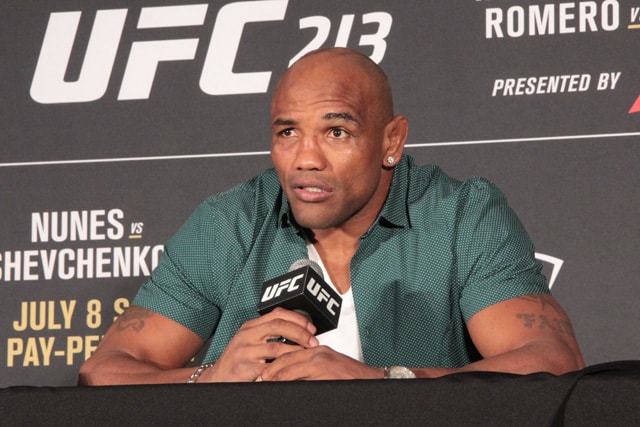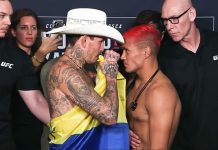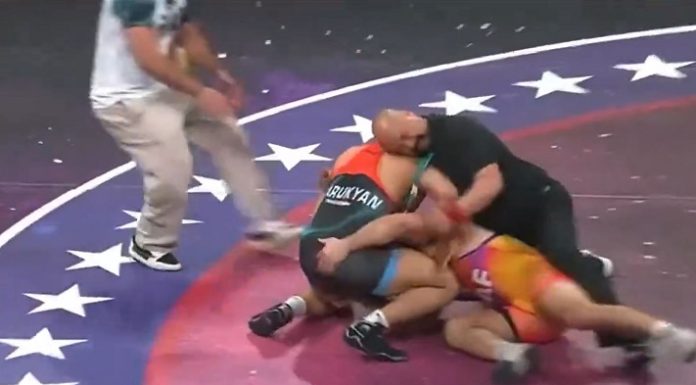
Just over three years into the UFC’s partnership with USADA, and the results are anything but what was expected.
The entire premise of the UFC’s partnership with the United States Anti-Doping Agency, officially launched in July 2015, was that it would help clean up the sport of mixed martial arts at the highest level for good. Presumably, fighters who had gotten away with doping for years would now be subject to 24/7, year-round testing and they’d surely be popped, while the clean fighters could compete for Championships. In theory, fans could actually get to see who the best pure athlete in the world was, not which fighter who had the best Victor Conte wannabe in their corner.
It’s been three years and a month, roughly, since the UFC/USADA partnership went into effect and it’s been a complete disaster both financially and functionally. As a percentage the UFC probably has more clean fighters on its roster than at any point in company history, but there’s also a significant amount of fighters who have been acquitted of any wrongdoing, yet have sat out with a mandatory suspension.
Where do we begin? Let’s start with fighters wronged by USADA in recent times:
- Junior dos Santos was given a 6-month suspension after testing positive for a banned substance. This was later found to be due to taking a tainted supplement created in a Brazilian pharmacy. Though JDS was found innocent after a joint investigation by USADA and Brazilian anti-doping officials and law enforcement, he was still punished and lost out on a big fight with Francis Ngannou at UFC 211. He wasn’t even eligible to compete until the end of April.
- Little Nog and Marcos Rogerio de Lima were actually caught up in the exact same incident and suspended alongside JDS.
- Angela Hill’s UFC return was delayed because the UFC wouldn’t allow her to use the same ‘loophole’ that Brock Lesnar used to return at UFC 200.
- Yoel Romero was given a 6-month suspension for taking a tainted supplement and taken out of Middleweight title contention.
- Tim Means was given a 6-month suspension for taking a tainted supplement.
- Josh Barnett was given a warning for testing positive for ostarine, and though USADA originally wanted to drop the hammer on Barnett, the former UFC Champion had the money to fight USADA, and won. The whole case is talked about in-depth here on the Joe Rogan Experience.
- Anderson Silva was given a 1-year suspension for taking a tainted supplement (second violation).
- Kelvin Gastelum was given a 6-month suspension after testing positive for cannabinoids.
And that’s not all. The fighters that were given suspensions were simply given a slap on the wrist by USADA, at least in the anti-doping organization’s eyes – but that counts as an offense, and in Anderson Silva’s case it appears he was hit with his second offense. Josh Barnett was the only one to come away from his USADA case with a positive outcome and that’s only because he had enough money to push the issue. In Angela Hill’s case, she isn’t a popular enough fighter for the promotion to bend their elastic rules. And for all, lost time equals lost money.
The Ultimate Fighting Championship’s partnership with the United States Anti-Doping Agency has harmed innocent fighters and it needs to come to an end. That is not to say that there should be a lack of drug testing in combat sports — but the current system has failed the fighters, helped tank the PPV buy rate, and led to less exciting fights for the fans. Innocent fighters sit with suspensions, while the company tries to find the latest caveat to set Jon Jones free.
It doesn’t help that the athletes had no say in the system’s creation or implementation. It certainly doesn’t help that USADA seems unwilling to admit fault no matter the circumstances. Which means that it is time to end the current system — and find something more efficient to take its place. Not to mention more fair.





















